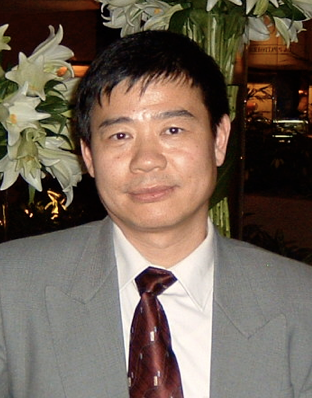Partial Upgrading: Challenges and Opportunities
Jinwen Chen
CANMET, Canada
3:30pm - November 2, 2017 - ETLC 1-001
Abstract:
The extraction and upgrading of oil sands are highly energy intensive with high capital and operation costs. There have been several critical challenges that hinder further oil sands developments: 1) diluent requirement and limited pipeline capacity; 2) low raw bitumen quality, reduced value and limited access to new markets; 3) high greenhouse gas (GHG) emissions and capital/operating costs for full upgrading.
Recent studies have shown that partial upgrading technologies, especially if integrated with upstream operations can effectively overcome these challenges to reduce or even eliminate costly diluent use, increase bitumen quality and market value, and significantly reduce GHG emissions, capital and operation costs compared to bitumen full upgrading. A goal has been set by Alberta Innovate (AI) to process 20% of in-situ produced bitumen through partial upgrading by 2030. Partial upgrading is generally a relatively simple conversion process, compared to full upgrading, that partially upgrades oil sands bitumen to the level that it meets or close to meet pipeline transportation specifications in terms of density (940 kg/m3 at 15.6°C) and viscosity (350 cSt at 7°C). At the same time, other physical and chemical properties are also improved to some extent, such as total acid number (TAN) and asphaltene content, resulting in much improved bitumen quality so that refineries would be more willing to accept it as their blending refining feedstock.
This lecture will provide the audience an overview of partial upgrading fundamentals and chemistry, technology options, challenges in developing and implementing partial upgrading technologies, and research being conducted at CanmetENERGY and other research organizations.
Biography:

Dr. Jinwen Chen is currently the director of hydrocarbon conversion program at CanmetENERGY Devon lab, Natural Resources Canada. He joined CanmetENERGY in 1999 as a research scientist. His research areas and expertise include: oil sands bitumen and heavy oil production, upgrading and processing; petroleum refining; process modeling, simulation and optimization; life cycle assessment on GHG emissions from oil and gas industry; design, modeling and simulation (including CFD simulation) of multiphase chemical reactors; novel catalysts and catalytic process development; chemical reaction engineering and reactions kinetics; thermodynamics and vapor-liquid phase equilibrium in hydroprocessing systems; biomass conversion and biocrude upgrading; co-processing biocrudes with petroleum.
Dr. Jinwen Chen has led and accomplished numerous research projects sponsored by governments and industrial companies to advance fundamental research and new technology development. He established broad national and international collaborations with other federal and provincial government organizations, academia and industry over a wide range of research subjects. He has authored/co-authored over 160 journal and conference proceeding papers, and many industrial client reports. He has been a member of many scientific committees and expert panels to evaluate research proposals, assess centers of research excellence, and organize international conferences, symposia and workshops. Dr. Chen is member of serval journal editorial boards, and a regular reviewer for many prestigious scientific journals. He is a registered professional engineer in Alberta, Canada.
Dr. Jinwen Chen received his bachelor's, master's and Ph. D. degrees from Tianjin University, China. Before joining CanmetENERGY, he worked in Tianjin University, Washington University in St. Louis and University of Calgary as associated professor, research associate and research scientist, respectively.